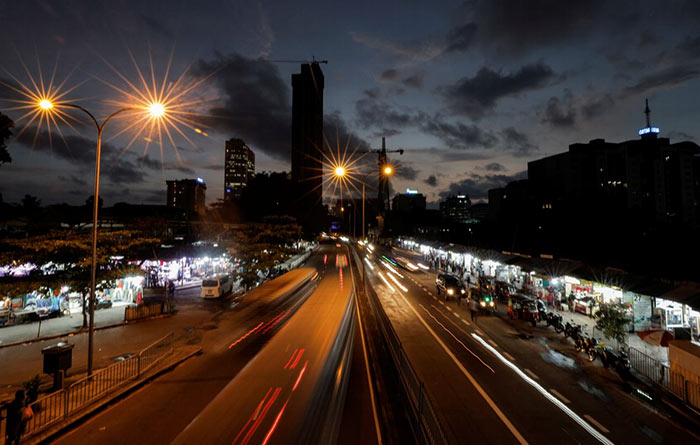Sri Lanka’s 2023 budget aims to put crisis-hit economy back on track

A general view of city’s skyline, amid the country’s economic crisis in Colombo, Sri Lanka. (REUTERS / Dinuka Liyanawatte)
Sri Lanka’s new government will release the 2023 budget on Monday focused on boosting revenue, implementing tax reforms and fiscal consolidation to secure an IMF bailout package to help the country recover from its worst financial crisis in decades.
Soaring inflation, a weakening currency and low foreign exchange reserves have left the island of 22 million people struggling to pay for import essentials such as food, fuel and medicine.
The budget is also expected to include measures aimed at helping Sri Lanka restructure its debt as it tries to finalise a $2.9 billion bailout from the International Monetary Fund. Sri Lanka owes investors around $30 billion in bilateral and bondholder debt.
“Markets will be looking for reforms in the budget for the country to move forward,” said Dimantha Mathew, head of research at First Capital Holdings.
“We are hopeful of the IMF program being finalised in January and the debt restructuring to be in place from mid-2023.”
President Ranil Wickremesinghe’s first full-year budget since taking office in July comes as Sri Lanka is struggling with a shrinking economy and global recession fears.
The World Bank estimates Sri Lanka’s economy will contract by 9.2% in 2022 and 4.2% next year.
TRICKY SPENDING CUTS
The government has already spelt out proposals to increase personal and corporate income tax to 30% from 24% and possibly change tax brackets to boost revenue despite criticism from corporates and opposition parties.
However, reducing expenditure is likely to be tricky, given Sri Lanka’s large public workforce and high debt.
Recurrent spending in 2023 is listed at 4.6 trillion rupees ($1.3 billion) in the Appropriation Bill, a precursor for the budget, with interest payments seen making up 36.5% of that expenditure. That would amount to 2.1 billion rupees in interest payments, a 55% jump on 2022 levels.
Total spending is expected at 5.9 trillion rupees in 2023, with capital expenditure likely to make up 20.9% of that total.
Welfare spending is also seen rising.
The United Nations this week expanded its funding appeal by $70 million to help Sri Lanka’s population, 28% of which is facing food insecurity. Sri Lanka’s food inflation reached 85.6% in October.
“This means the budget deficit will remain at 9%-10% (of GDP). It will be hard to shrink unless interest rates come down,” said Udeeshan Jonas, chief strategist at equity research firm CAL Group.
Sri Lanka’s economy could recover in the “latter part of 2023,” the central bank said recently, adding this would be dependent on policymakers’ unwavering commitment to implementing policy reforms in a timely, holistic, and efficacious manner.
(Reuters)
Latest Headlines in Sri Lanka
- Arjuna Ranatunga, brother indicted over CEYPETCO loss January 22, 2026
- GMOA announces 48 hour nationwide hospital strike January 22, 2026
- Nuwara Eliya records 3.5°C as Sri Lanka sees sharp temperature drop January 22, 2026
- CEB trade unions warn of action from February 01 over unresolved issues January 22, 2026
- IMF delegation arrives in Sri Lanka to assess Cyclone Ditwa impact January 22, 2026



If International Monetary Fund do not finalise a $2.9 billion bailout this budget does not worth the paper it is written in.